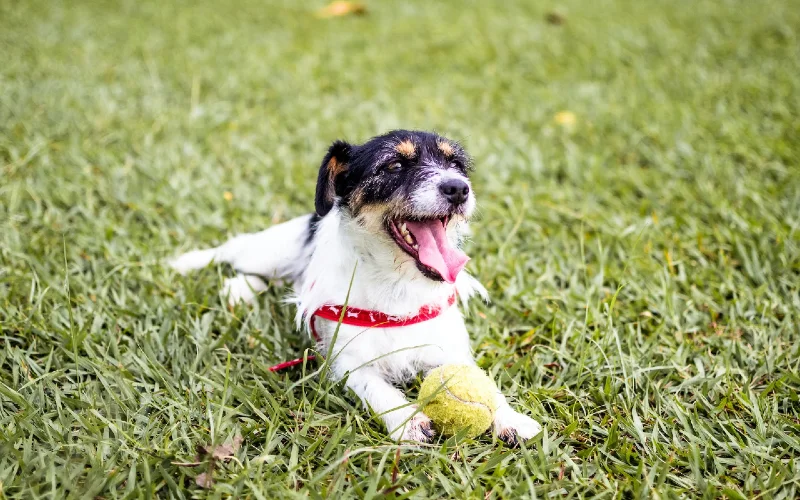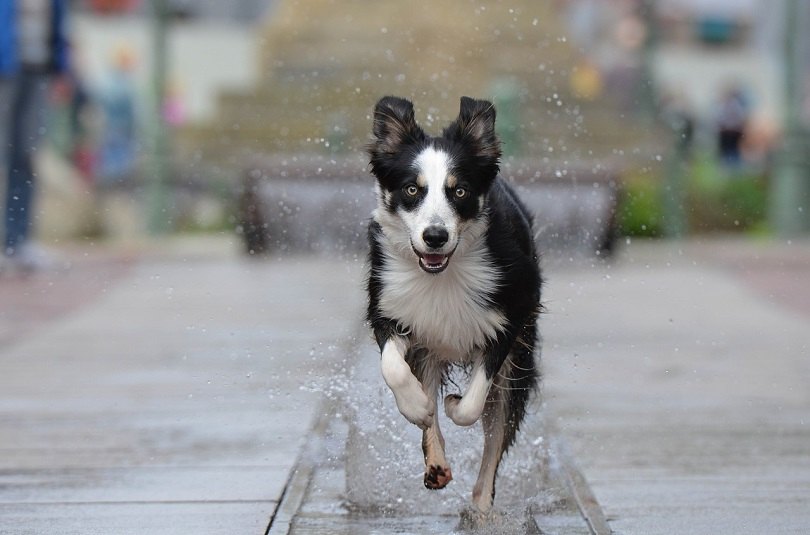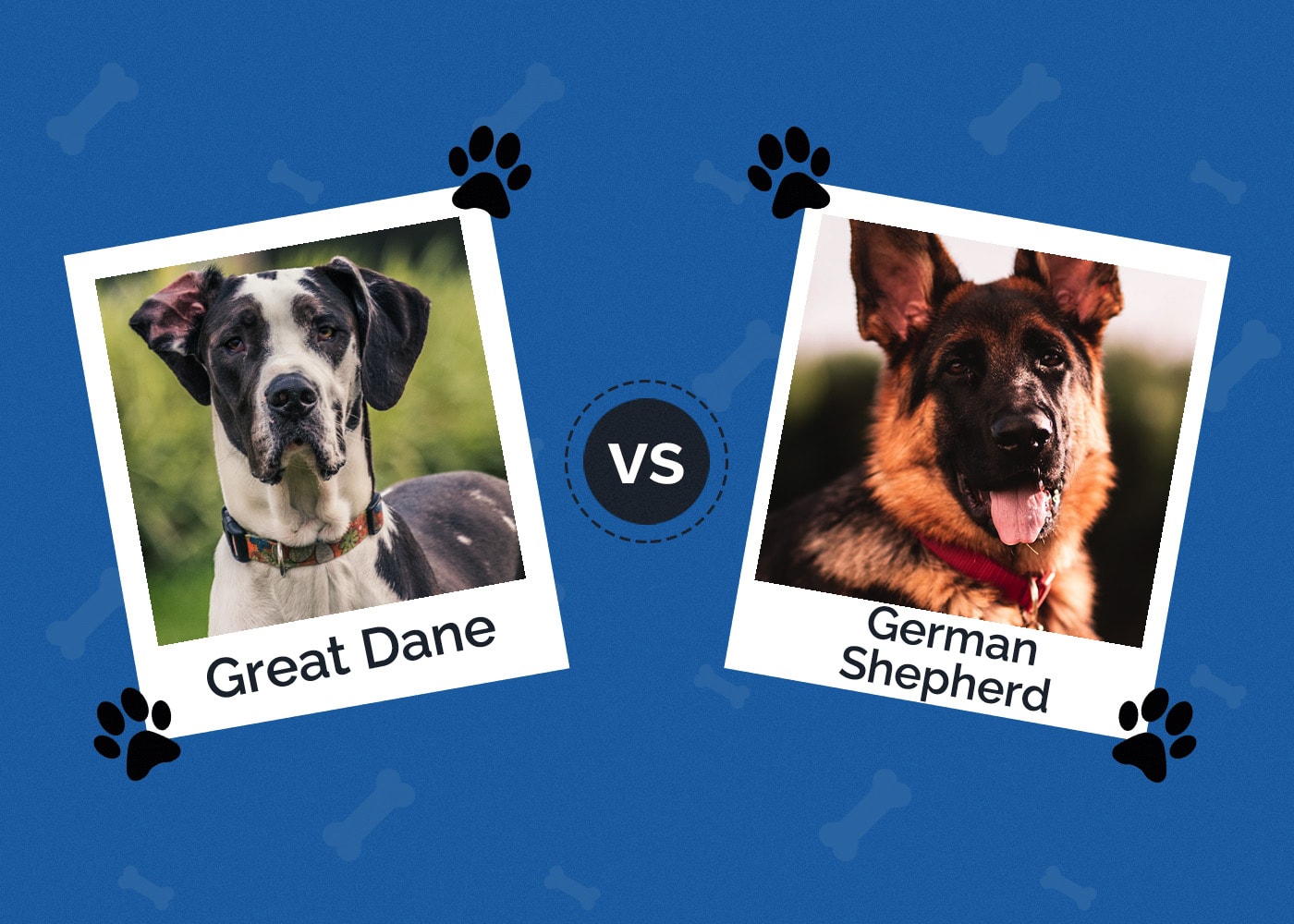Why Is My Dog’s Nose Dry? 8 Vet-Reviewed Reasons
Updated on
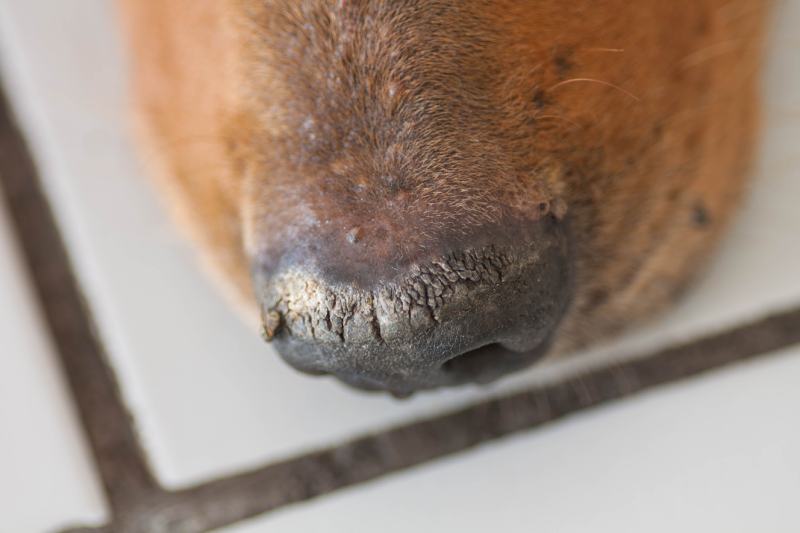
Most people have heard the old adage that if a dog’s nose is wet, they’re healthy, and if a dog’s nose is dry, they’re sick. The good news is that this is not always true. In fact, there are a lot of reasons that your dog’s nose may become dry, temporarily or permanently. Some of these causes are of concern and will require a vet visit, but it’s a good idea to familiarize yourself with the potential causes so you’ll know if you should be concerned about your pup’s dry snout.
The 8 Vet-Reviewed Reasons Your Dog’s Nose is Dry
1. Old Age
As dogs age, their body will change in many ways. One way is that old dogs may have dry noses, and this is a perfectly normal part of aging. This may result in some rough skin on the nose, called hyperkeratosis. This condition is not usually painful, but if your dog’s nose seems to be drying to the point of cracking or causing discomfort, there are some dog-safe salves that are suitable for the nose. However, it’s a good idea to verify with your vet that there is nothing to be concerned about if you think your dog’s nose dryness is related to old age.
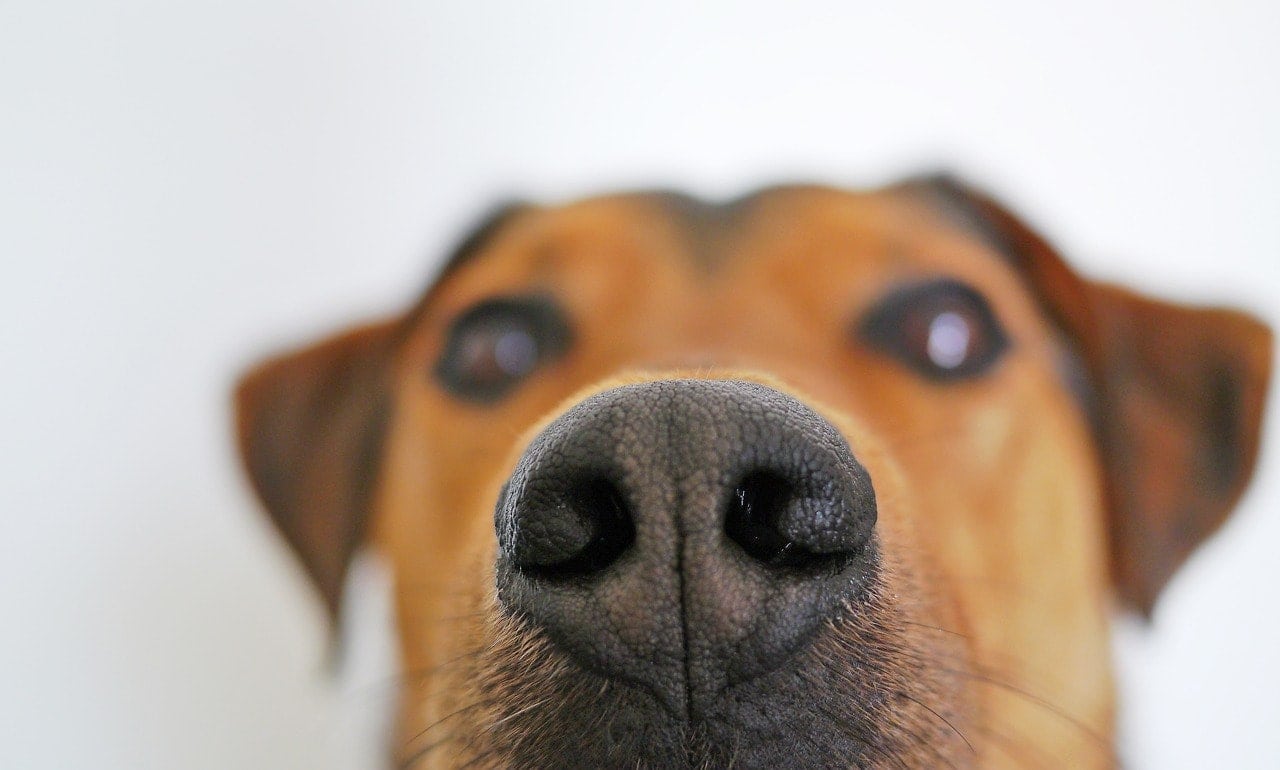
2. Post Napping
While your dog is awake, they spend a lot of time licking their nose. It’s almost as reflexive as blinking. Nose licking helps to keep the nose moisturized, but dogs don’t lick their noses while they’re sleeping. Because of this, your dog may wake from a nap with a dry nose. Usually, this will remedy itself once your dog wakes up and gets back into its usual nose-licking schedule. This may happen after your dog takes a nap, even a short one, or sleeps through the entire night.
3. Exposure
Exposure to heat, wind, cold, and other elements can cause nose dryness for dogs. This can occur if your dog spends a lot of time with its nose near a heater or air conditioner. Just like your lips in the winter, exposure to wind, especially cold wind, as well as snow and ice can also result in a dry nose for your dog.
Once your dog is out of this environment, they are likely to no longer have a dry nose, although damage from the elements may take days or weeks to heal, depending on the severity. If your dog experiences significant exposure, like being outside without shelter during the winter, then a vet visit may be needed to rule out severe injury, like frostbite.
4. Breed
Some dog breeds seem to be more prone to having dry noses. Brachycephalic breeds are breeds with short snouts and flat faces. These breeds include Pugs, Boxers, Bulldogs, Pekingese, and French Bulldogs. Due to their anatomy, these dogs may have trouble properly licking their nose to moisturize it. Because of this, they may develop a dry nose.
Dog-safe salves can often help keep the nose moisturized and free of discomfort in dogs that anatomically struggle to keep their noses moisturized.
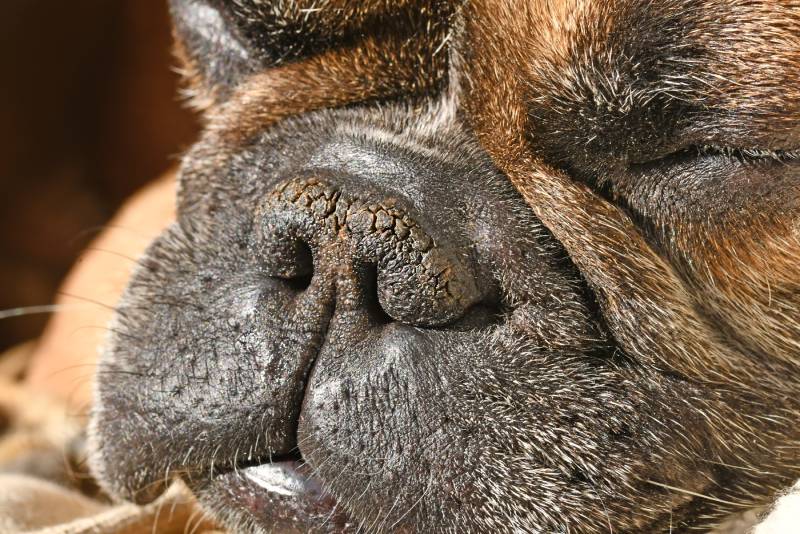
5. Sunburn
Did you know that dogs can get sunburned just like you can? It isn’t overly common for dogs to get sunburned, but it can happen with excessive, strong sunlight exposure. It’s more likely to occur in dogs with light-colored skin or a thin coat, but any dog can get sunburned on exposed skin, including the nose.
Sunburn can cause the same signs that it does in humans, including burning pain, blisters, redness, and peeling. If your dog appears to have gotten a significant sunburn, have your vet take a look. There are sunscreens on the market now that are made specifically for dogs.
6. Allergies
Allergies can have a lot of unpleasant symptoms, including skin problems. Skin dryness, flaking, and irritation can occur with environmental and food allergies. In some cases, this may extend to the nose.
It’s also possible for your dog to experience respiratory allergy symptoms, much like hay fever in people. If this occurs, excessive dryness of the nasal passages can lead to nose dryness because the nasal passages are part of the system that keeps your dog’s nose moisturized.
Of course, if your dog is experiencing significant allergy symptoms, either respiratory or skin, then they should see a vet.
7. Dehydration
Dehydration can occur on a spectrum of severity levels, but just about any level of dehydration can lead to nose dryness. Mild dehydration can occur after exercise. Usually, mild dehydration is reversed by your dog resting and drinking water. However, dogs can experience severe dehydration from excessive exercise, heat, salt poisoning, and illness.
Your dog should always have access to clean water, even during hikes and other outdoor activities. During the summer, keep outdoor play sessions and exercise to short spurts multiple times per day instead of long sessions. Ensure your dog is drinking enough water to stay hydrated by always providing them with a source of water.
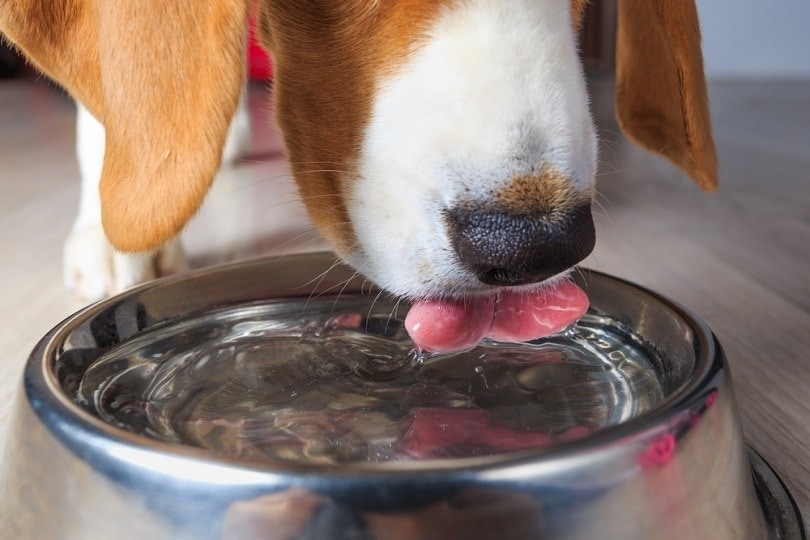
8. Autoimmune Disease
There are multiple autoimmune diseases that dogs can develop that can lead to skin irritation, including nose dryness. Lupus and pemphigus are the two most common causes of immune-mediated nose dryness in dogs. These conditions are usually accompanied by other symptoms, and your dog is likely to have very severe nose dryness to the point of cracking, bleeding, and pain.
If your dog develops nose dryness to this point, they should see a vet to rule out a medical condition. This even applies if any of the above causes have occurred. It’s always possible for serious medical conditions to be masked by benign events.
Nose Licking in Dogs
While you do want your dog to regularly lick their nose to keep it moisturized, you should work to notice when their routine of nose licking changes. Dogs that begin licking their nose excessively or too little may be sick. If your dog begins licking their nose excessively due to nasal drainage, then there is likely a medical problem that needs to be addressed.
There are multiple reasons that your dog may not lick their nose enough to keep it moisturized, but it’s a good idea to check with your vet before you start applying a topical moisturizer to combat dryness. They will be able to help rule out serious conditions and ensure the product you choose is safe for your dog.
Conclusion
Dogs can experience nose dryness for multiple reasons, but most of them are benign causes or causes that are easy to remedy. Excessive nose dryness can indicate a serious medical condition, though. If the moisture level of your dog’s nose changes to the point that you notice it, it won’t hurt to at least call your vet to determine if a visit is warranted. It’s possible that there’s nothing to be concerned about, but it’s important to not accidentally overlook serious problems because of a benign presentation.
Featured Image Credit: Siriporn prasertsri, Shutterstock




